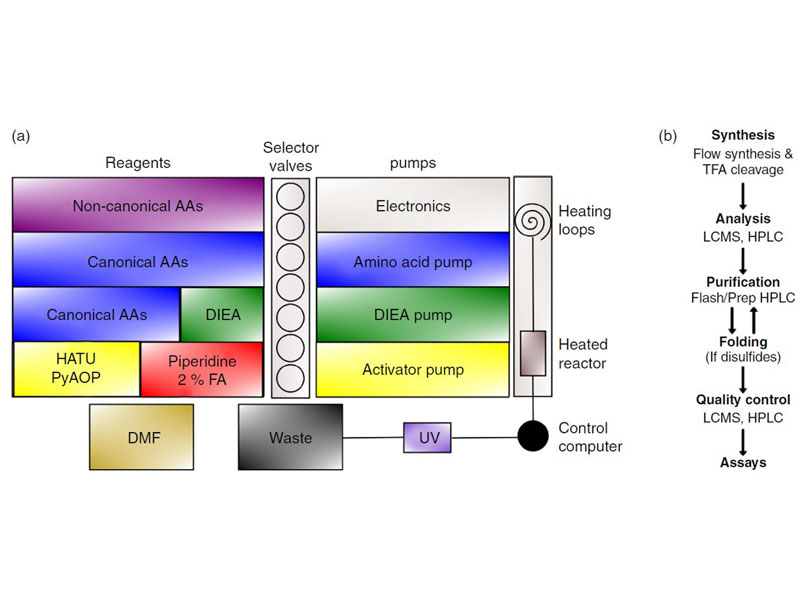
Efficient Flow Synthesis of Human Antimicrobial Peptides

Efficient Flow Synthesis of Human Antimicrobial Peptides
Australian Journal of Chemistry 73(4) 380-388 https://doi.org/10.1071/CH20043
Submitted: 10 February 2020 Accepted: 11 March 2020 Published: 8 April 2020
John S. Albin, Bradley L. Pentelute
Abstract
Organisms from all kingdoms of life have evolved a vast array of peptidic natural products to defend against microbes. These are known collectively as antimicrobial peptides (AMPs) or host defence peptides, reflecting their abilities not only to directly kill microbes, but also to modulate host immune responses. Despite decades of investigation, AMPs have yet to live up to their promise as lead therapeutics, a reality that reflects, in part, our incomplete understanding of these diverse agents in their various physiological contexts. Towards improving our understanding of AMP biology and the ways in which this can be best leveraged for therapeutic development, we are interested in large-scale comparisons of the antimicrobial and immunological activities of human AMPs, an undertaking that requires an efficient workflow for AMP synthesis and subsequent characterization. We describe here the application of flow chemistry and reverse-phase flash chromatography to the generation of 43 AMPs, approaches that, when combined, significantly expedite synthesis and purification, potentially facilitating more systematic approaches to downstream testing and engineering.



